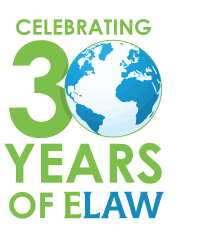Cartagena Convention Holds Promise in the Caribbean

ELAW partners in the Caribbean and around the world are looking for new tools to protect fragile marine ecosystems.
The Convention for the Protection and Development of the Marine Environment of the Wider Caribbean Area (known as the Cartagena Convention) has been ratified by 26 UN Member States in the Wider Caribbean Region. This region includes countries that border the Gulf of Mexico, the Straits of Florida, and the Caribbean Sea out to a distance of 200 nautical miles from shore.
Yesterday, more than 30 ELAW partners from across the Caribbean, as well as Kenya, Liberia, Morocco, and India, joined the ELAW Marine Working Group for an online discussion with Christopher Corbin and Ileana Lopez of the Cartagena Convention Secretariat.
Corbin and Lopez shared how the Convention works to protect marine biodiversity from numerous threats, including land-based oil spills. They were joined by Dr. Darryl Banjoo from the Cartagena Regional Activity Center for Land Based Protocols and Fadilah Ali from the Gulf and Caribbean Fisheries Institute.
Dr. Banjoo discussed existing standards and plans to apply and improve them and Ali explained how civil society organizations have been working in alliance with the Cartagena Secretariat to advance efforts to protect the coast and marine ecosystems.
ELAW is working with partners in 15 countries in the region, including Jamaica, Honduras, Guatemala, Colombia, Mexico, and Panama to protect communities from mining industry abuses, short-sighted coastal development, and oil and gas exploration.
The Cartagena Convention is an opportunity to promote better standards and sustainable economic activities in the region.
We will keep you informed of our progress!

Alejandra Serrano
Attorney
Environmental Law Alliance Worldwide


